Estrogens vs. Androgens
We live in a world of estrogen dominance and this is a leading factor in many of the health problems people face today. To investigate this we’ll discuss what estrogens and androgens are, the many effects of estrogen dominance, how we become overloaded with four bad kinds of estrogens, and lastly what you can do about it.
This article is important for both men and women. Women have much more estrogen than men. Men have many more androgens then women. But both genders have both. And both are effected by the modern day environment to become estrogen dominant in a way that undermines their health and performance.
Different Types of Estrogen
There are many hormones in the body, in fact there’s over 240 of them. For this discussion we need to dive into a few of these varieties. Estrogen is not just one hormone, but a class of several different forms.
- Estrone (E1) – One of the worst estrogens appears to be 16 alpha-hydroxy-estrone. However, there are also good estrones like 2 hydroxy-estrone.
- Estradiol (E2) – Excessively elevated levels of estradiol are the most common of the “bad” estrogens.
- Estriol (E3) – Of all the estrogens, estriol appears to have the best health producing effects.
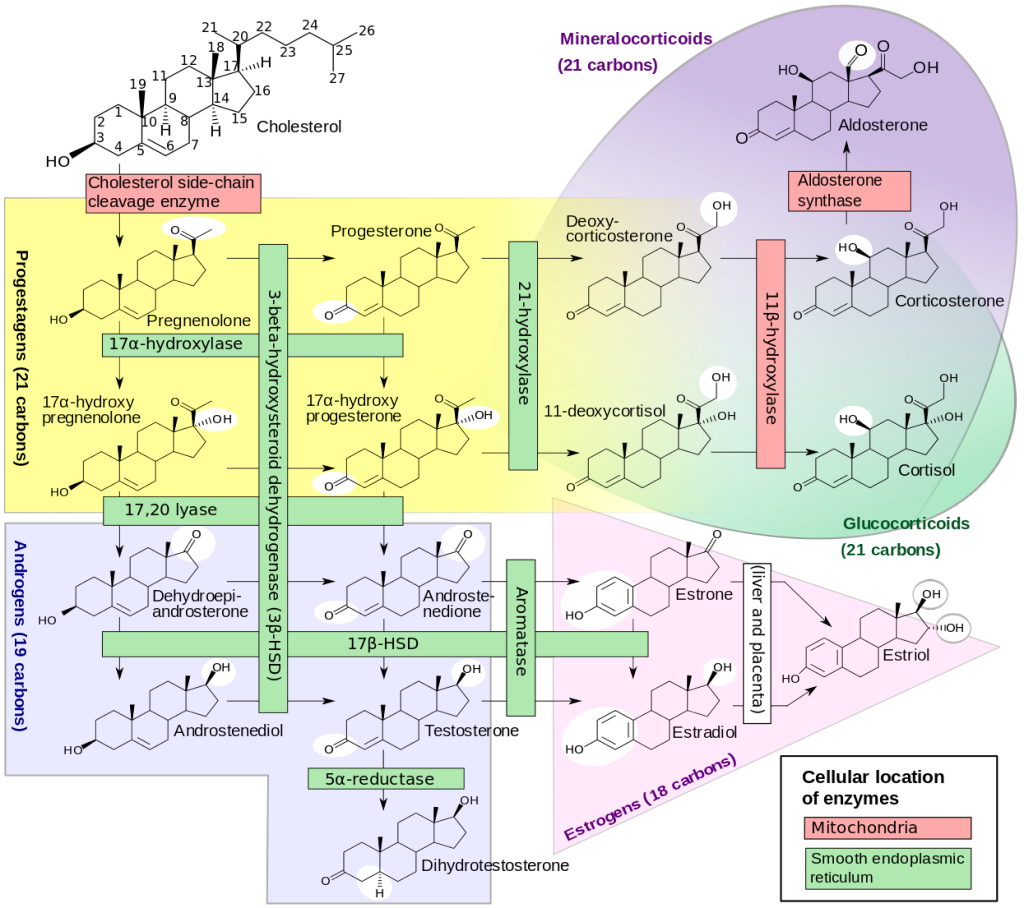
The conversion of many hormones including the androgens and estrogens
So its important to note that while all estrogens are necessary in both men and women, especially women, their effects will depend on the ratio and amounts of them.
As we’ll discuss in more depth, estrogen dominance is an overburdening of excess estrogens, especially of the “bad kinds”, leading to all sorts of health issues.
The Androgens and their Effects
- Dehydroepiandrosterone (DHEA) – A “weak” androgen with very low biological potency as far as male sex effects, but many other important anti-aging roles in the body.
- Androstenedione – The precursor to testosterone with roughly 20 percent of its potency.
- Testosterone – The most well known of androgens, because of its strong effects.
- Androsterone – A breakdown product of the androgens with one seventh the strength of testosterone.
- Dihydrotestosteone (DHT) – A metabolite of testosterone, with excesses of it playing a role in male pattern baldness and prostate issues.
Having your androgenic hormones working properly will allow you to build and retain muscle mass better, support weight loss, enhance sex drive and function, increase “zest and vitality” and a sense of well-being in life, and even support cognitive function.
In addition to these effects for both sexes, androgens serve as the precursors to estrogens. So the androgens are required as precursors to some of the hormones they need and must be converted.
The Bad Effects of Estrogen Dominance
So just what will estrogen dominance do to you? Here’s a list of a variety of illnesses and problems it can contribute to.
- Weight gain (especially being unable to get rid of “stubborn” fat)
- Lack of Sex Drive
- Impotence
- Bone loss and osteoporosis
- Cancer, especially breast in women and prostate in men
- Diabetes
- Breast enlargement (early development for girls, and also “man boobs” or gynocomastia for guys)
- Acne
- Foggy Thinking
- Insomnia
- Impaired athletic performance
- Immune system compromise
- Low energy and “mid-day slump”
- Slow healing
- And more
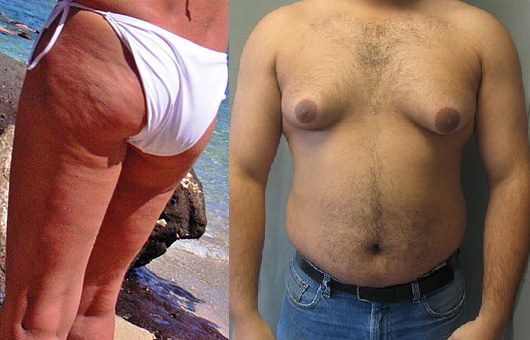
Estrogen dominance can lead to many health problems and “cosmetic” issues like cellulite and “man boobs”.
Three Additional Hormonal Problems
Age Related Decline
Unfortunately, after puberty our “healthy” hormones, in both men and women go on a decline that appears to last the rest of our lives. It appears we’re made to become men and women, and be able to pass on our genes, peaking in our 20’s, then it’s a slow decline from there.
Eventually this leads to menopause in women and andropause in men. Both of these occur when the hormones have suffered enough to lead to some massive changes in the body.
While this is a natural process it can be “put off”, and certainly become an easier transition, by taking the right steps to support your hormones. The whole field of anti-aging is largely about keeping your hormones at the healthful levels of your youth.
Aromatization
Aromatase is an enzyme that converts androgens into estrogens. While necessary, this can become a problem especially in men if it is being done too much. If so, this takes all the hormones that would give you health and vitality and convert them into something that does the opposite.
A variety of factors, like too much toxicity and impaired detoxification can contribute to increased aromatization.
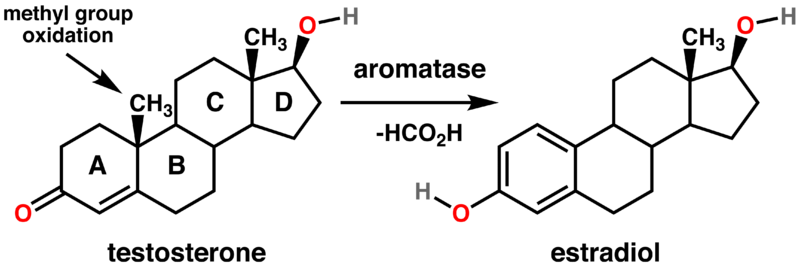
Aromatization is the conversion of health androgens into often unhealthy estrogens.
Sex Hormone Binding Globulin
SHBG, as the name suggests, is a protein that binds to androgens making them unavailable for use in the body. This and other binding molecules, are the difference between total and free testosterone. The sad fact is that testosterone can’t deliver its benefits if its bound up. While SHBG serves its role in the body, once again, too much can contribute to estrogen dominance.
Our Overly Estrogenic Environment
As previously mentioned the modern day environment is the biggest contributor to estrogen dominance and all of the problems that brings. Here we’ll explore just how prevalent these estrogens are in our everyday lives.
The different types of estrogens can be classed in a number of ways.
Xeno-estrogens
From pesticides, chemicals, plastics and more. Common sources include:
- Bovine Growth Hormone
- Tap water
- Laundry detergents
- Chemicals in sunscreens
- BPA found in most plastic
- Food coloring like Red 3
- Parabens found in cosmetics and shampoos
- Insecticides like DDT, DDE, indane (banned in Europe but still in use in the USA), methoxychlor, etc.

A heavy dose of estrogenic pesticides and insecticides.
Phyto-estrogens
These estrogenic compounds are found in nature. If we lived in a “natural” world these probably would not be a problem, but in combination with the other estrogens it is best to avoid these completely.
- Soy – Soy is touted for its benefits as a widely consumed component of Oriental diets. However they almost always eat it in fermented forms (miso, tempeh, natto) that break down estrogenic compounds in it. It is best to avoid processed soy foods like soy milk and tofu completely.
- Hops – Found in 99.99% of beers. After the German Beer Purity Laws it was discovered that the women who collected hops for beers experience earlier menstrual periods. Also men suffered from reduced libido and feminization.
- Flax seeds – Touted as a health food for its omega-3 content, this may lead to estrogen problems. A much better similar food is chia seeds. Although defatted flax seeds appear to help pull out excess estrogen from the body.
- Licorice root – A common harmonizing herb in many Chinese herbal formulas. Unfortunately it also has very strong estrogenic effects.
- Coffee – One study found it to increase estradiol levels.
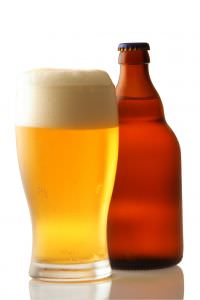
Its not just the calories that contribute to a beer gut, but estrogenic hops causing fat accumulation.
Metallo-estrogens
While many people in the field of health are aware of the problematic effects of heavy metal toxicity it is not well known that these metals contribute to estrogen dominance. Heavy metals contaminated products include:
- Fish (farmed fish is even higher in heavy metals than wild caught)
- Most tap water supplies
- Household cleaning agents
- Cookware
- White Flour
- Deodorants
- Pharmaceuticals
- Pollution (simply breathing in major cities causes consumption of lead and other heavy metals)
- Mercury Dental Fillings
- Vaccines
- And much more
Myco-estrogens
These toxins are from various fungi that contaminant many foods.
- Aflatoxins found in peanuts, cotton, corn and other grains.
- Ochratoxins found in beer, wine, coffee, and much more.
- Most cheeses and coffee are full of various sorts.
- Black molds and other hidden dangers within your home.
- If you suffer from candida overgrowth your body may be producing excess estrogens from within.
- And many more
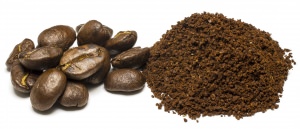
Do you know what’s growing on your coffee?
The best thing you can do is limit your exposure to all of the above. But because these things are everywhere that’s a tall order even for the most health-conscious of people.
The Superfood of the 21st Century
Because of all of the estrogens in the environment our androgens, for both men and women, need support.
Even if we do everything we can, and let’s face the truth, that very few people are, avoiding estrogens is like a losing a war against an over-whelming enemy.
So let’s bring in the CAVALRY.
Earlier we discussed phyto-estrogens. These are estrogen mimicking compounds in various plant foods. While some may serve a purpose, the problem is with all the other estrogens, it is probably best to avoid these as much as possible.
Many people in the field of health are aware of these. But most are not aware of phyto-androgens. Part of this reason is that these are far more rare.
Luckily there is one substance that is fully loaded with them, the pollen of pine trees. (As a side note, pine nuts do contain some androgens, but in much smaller amounts.)
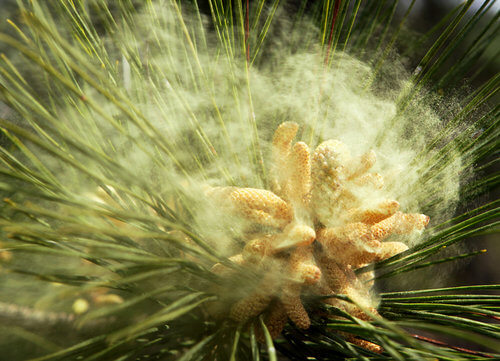
As part of the reproduction of pine trees, pine pollen is loaded with phyto-androgens which the human body can benefit from.
Pine pollen, as the male reproductive part of a pine tree, has many phyto-androgens.
Pine pollen contains gibberellins which are structurally very similar to testosterone. In fact, they have been found to actually connect with testosterone receptors in the human body. Basically, they can mimic testosterone in the body and, as Stephan Harrold Buhner tells us in his book The Natural Testosterone Plan, “because of their adrenal and pituitary actions, they stimulate androgen production in the body; energy levels increase.” They act as prostate regulators, up regulating when the prostate is too small (one study had castrated rats keep their prostates from shrinking) and down regulate when the prostate is too big and inflamed. They are also anticancerous and anti-inflammatory in the rest of the body.
Pine pollen also contains over 30 different kinds of brassinosteroids. Two of these brassinosteroids are used in the mechanism through which the liver safely removes xenoestrogens and other chemicals from the body. They have strong antiviral actions and are, “considered to be highly novel steroidal compounds with unique anticancer actions while possessing very low toxicity.”
Pine pollen has substances that are similar to testosterone, DHEA, androstenedione, androsterone and more. And that’s not all. Its chock full of nutrition with over 200 bioactive antioxidants, vitamins, minerals, amino acids and other super nutrients.
Understand that this is not like hormone replacement therapy. These are small amounts of hormones, but combined with the intelligence of all the necessary co-factors found in pine pollen. This doesn't boost your hormones to unsafe levels, but instead helps to educate your body towards a more normal or optimized function.

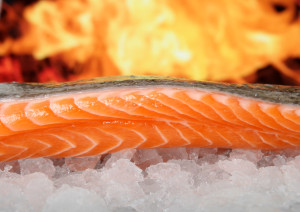
No comments:
Post a Comment